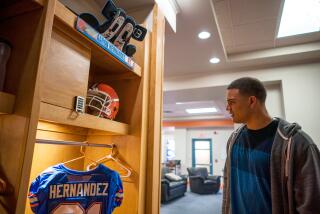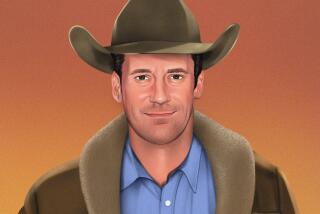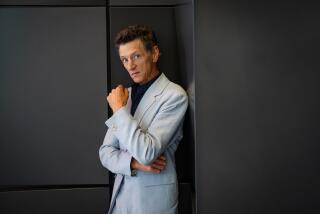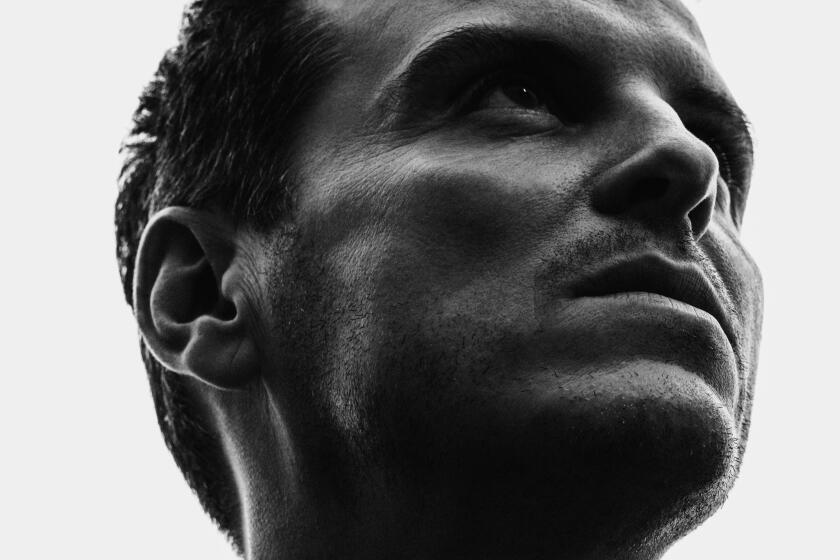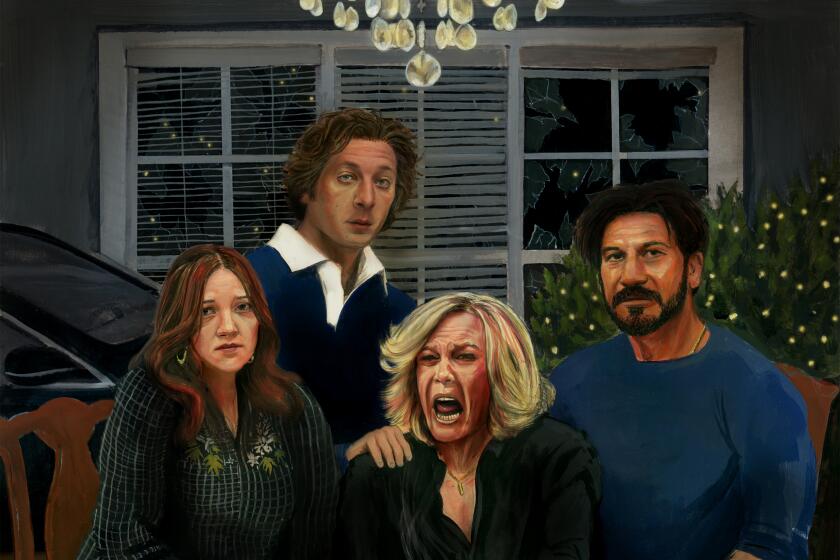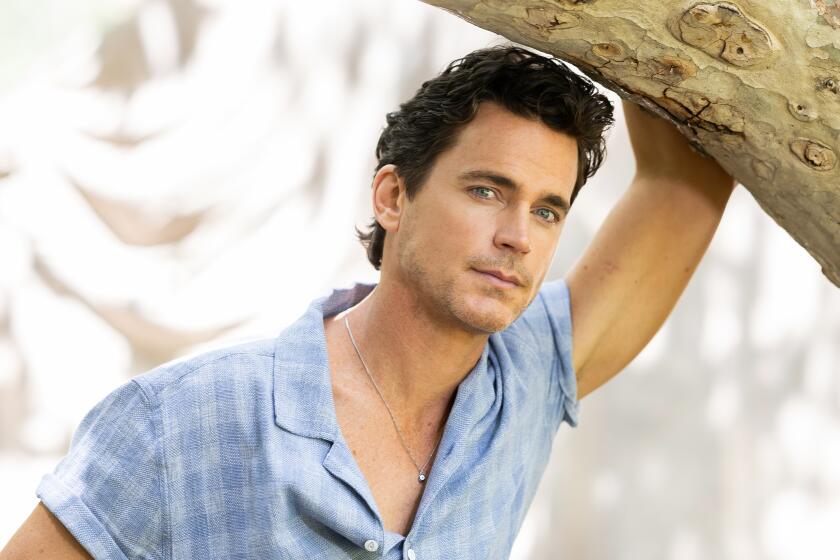The Envelope: Timothy Hutton’s postmortem on ‘American Crime’
On the day Timothy Hutton sat down with The Envelope at a small Italian restaurant in Manhattan, it was less than 24 hours after a shocking plot turn had aired on the season finale of “American Crime,” ABC’s provocative examination of race and class. Naturally, that was key to the discussion of the series and his character, Russ Skokie, a divorced former gambler who’s spent years trying to reestablish a connection with his now-grown sons. So there are not only spoilers ahead, this entire conversation is a spoiler. If you don’t yet want to know how the series ends, turn the page. Now.
The limited series, which this season focused on the murder of Skokie’s son, will return for a second season in which the Oscar-winning actor (who picked up his statuette in 1980 at age 20 for “Ordinary People”) will be back in a different story and a different role. A veteran of movies and TV, Hutton arrives with no artifice — genuine, a little intense and happy to explain the inner workings of Russ Skokie.
FULL COVERAGE: Emmys 2015
Did you know from Day One that Russ would come to such a shocking end?
Last year when we were doing the pilot, [executive producer] John Ridley said, “I bet you’re curious where this character ends up. How much do you want to know?” I said, “As much as you think will help.” It’s interesting when someone doesn’t know the whole arc; that way they don’t subconsciously tip the hand. So he told me what happens to Russ. For months I didn’t tell anyone.
Was it useful to know that he dies, having wrongly killed the man he thought shot his son?
It was extremely useful because it allowed me to reverse engineer to where the character needed to be. I had to show somebody who was trying to rebuild his life when it was too late.
Can it ever be too late to rebuild a broken relationship with your family?
If someone has caused the kind of damage where they have interfered with and interrupted another person’s life in such a severe way, it can be too late. Especially when it comes to parenting. [Russ] really believed you can repair things. I liked his determination to make things OK again.
What made him snap?
When he realized that he doesn’t have a family, a sense of self, a purpose — he got put down a path to establish a sense of justice. Then his suicide, it isn’t about guilt. It’s just that there isn’t anything left inside of him.
VIDEO: Emmy contender chats
Ridley has been quoted as saying you really impressed him with your passion for the part. What the heck did you do?
I was early [for the meeting with Ridley and executive producer Michael McDonald], so I sat in the Disney parking lot thinking about the meeting. Directors will often say, “What do you think about the character?” So I started writing out a list of what I thought Russ Skokie was — how he spent his days, who his friends were, what he did on weekends, what car would he drive, what were his patterns. It was like doing an extensive Match.com thing. [Then at the meeting] John said, “You wanted to talk about this. What do you think about the script?” I said, “Can I just read something to you?” And I read the list.
Do you ever tire of having “Ordinary People” come up in interviews?
I’ve been asked over the years if it was difficult to have a defining role at such an early age, and I always felt it was a strange question. I never looked at it as defining; I just looked at it as a fortunate set of circumstances.
What was the moment when you knew you’d arrived as an actor?
I wasn’t the kind of person who ever felt like I “arrived.” I always felt that every job was the first time you were doing that job, that role, with those people. Early on I thought it was important to stay in a frame of mind where you had to go all the way back to the beginning each time you started out and trust that experience would always keep you grounded.
Has it?
For the most part, but there have been plenty of times where I felt lost. Fortunately, there’s always been some kind of corrective mechanism where if I ever felt that way, I would do everything I could to get back on track.
More to Read
From the Oscars to the Emmys.
Get the Envelope newsletter for exclusive awards season coverage, behind-the-scenes stories from the Envelope podcast and columnist Glenn Whipp’s must-read analysis.
You may occasionally receive promotional content from the Los Angeles Times.
